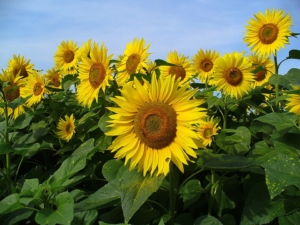
Parliament halts trilogue talks on New Genomic Breeding Techniques
Final negotiations on proposed EU regulations for plants developed through genetic precision breeding have been delayed, following opposition from a group of MEPs in the European Parliament’s ENVI Committee. The group criticised the European Council and the European Commission for their inflexible stance on issues such as sustainability, labelling, and patent protection.
The 30th of June had been expected to mark a breakthrough in the protracted trilogue negotiations between the European Commission, the Council of Ministers, and the European Parliament. These discussions focus on how to simplify and accelerate the approval process for plants created by new genomic techniques (NGT) that are genetically indistinguishable from conventionally bred varieties. Since the start of confidential trilogue discussions on 6 May, negotiators had held fifteen meetings aimed at resolving key points of contention. The intention had been to confirm the compromises reached and to find consensus on remaining disputed elements.
However, a group of MEPs, led by French Social Democrat Christophe Clergeau, withheld approval in the lead ENVI Committee, resulting in the postponement of the planned 30 June date. The MEPs accused the Council and Commission of an uncompromising refusal to make concessions on product labelling and on the exclusion of patentability for plants developed using new genomic techniques (NGTs). The underlying issue, EU diplomats suggest, is that right-leaning parties, who are evenly represented in the ENVI Committee, support the Commission and Council’s stance and aim to push through the regulation.
In 2024, the previous European Parliament had voted in favour of relaxing authorisation and cultivation rules for NGT-derived crops, with a majority of 307 to 263 (41 abstentions), citing the shorter breeding timelines these techniques allow, which would facilitate the development of climate-resilient crops. To ensure transparency, this parliamentary majority had advocated for mandatory labelling of products using the phrase “(produced by) new genomic techniques”. Additionally, it had called for a complete ban on the patenting of NGT plants, plant material, and genetic information, to protect the breeder‘s privilege. According to critics, neither the Council nor the Commission showed willingness to compromise on these issues, contributing to the collapse of the scheduled negotiations. Moreover, there was said to be no movement on provisions specifically intended to support the development of climate-adapted crops.
In 2024, five NGT-1 plants had been approved, including a tomato that can lower blood pressure, with 15 more applications under review. Of 148 genetically modified plant varieties in the pipeline, 15% were transgenic, and 20% fell under the cis-genic NGT-2 category—both of which are subject to stringent authorisation and traceability rules. The remaining 60% were NGT-1 plants, although few of these offered demonstrable climate benefits.
Jessica Polfjärd, Chair of the ENVI Committee and the Parliament’s rapporteur on the NGT file, reaffirmed her commitment to progressing the legislation. “As Rapporteur for the NGT file, my clear priority is to see this legislation adopted as soon as possible,” she told European Biotechnology. “Farmers in Europe face major challenges like droughts and heatwaves, they need access to NGTs to build resilient and sustainable agriculture. More political discussion is needed, but I remain committed to finalising this file so Europe can stay competitive and innovative. I look forward to continued cooperation with the Council to achieve this,” she added.
It had already been anticipated that no agreement would be reached under the Polish Council presidency, with further progress expected only after Denmark assumes the rotating Council presidency on 1 July. Poland, having shifted to support the legislation, had proposed labelling for patented or patent-pending seeds and a de facto requirement for licensing NGT crops to farmers in January. This proposal succeeded in rallying a majority within the Council. However, both the Council and Commission maintain that product labelling is unnecessary, arguing that the resulting plants could also be produced through conventional breeding methods, and that mandatory labelling would therefore amount to technological discrimination.
While Polish Agriculture Minister Czesław Siekierski expressed optimism that the trilogue could be successfully concluded, other agriculture ministers suggested that agreement would not be possible before the second half of the year, under the Danish presidency. National cultivation bans (“opt-outs”) for NGT-2 varieties remain among the unresolved issues on the agenda. Denmark has expressed its intention to finalise the trilogue negotiations.
This time, a qualified majority in the Council may be achieved without the support of Germany, which in 2024 had blocked the opening of trilogue talks. Germany’s current Agriculture Minister, Alois Rainer, has yet to state his position on labelling and patentability of NGT plants. Rainer is from Bavaria, where a significant proportion of farmers focus on cultivating high-value organic crops.


 H. Zell - wikipedia.org
H. Zell - wikipedia.org fvm.dk
fvm.dk Polish Ministry of Agriculture - MRiRW
Polish Ministry of Agriculture - MRiRW